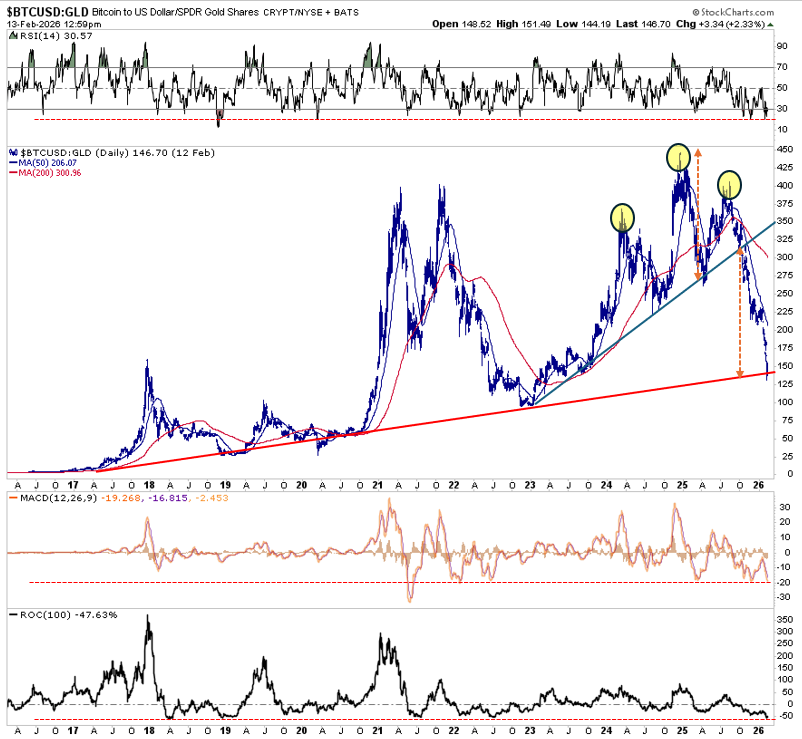Adam Tooze’s The Wages of Destruction (2006) has remained since its publication one of the most influential studies of the Nazi economy. Tooze, an economic historian who teaches at Columbia University, writes from a leftist perspective and does not appear to be familiar with the work of Ludwig von Mises, but the interpretation he offers of the aims of Nazi economic policy is the same as that of Mises. In what follows, I will first discuss Mises’s analysis and then show how Tooze confirms and supplements what Mises says.
Mises’s account of Nazism is contained in his book Omnipotent Government, published in 1944 while World War II had not yet ended. In Mises’s view, the fundamental fact that confronted all major German political figures after World War I was that Germany was not self-sufficient. It lacked the resources to feed its own people. One way to secure these resources was through foreign trade: German industrial exports, which were of high quality, could be exchanged for food. This left Germany dependent on foreign countries, and in a war, a hostile power might act to interdict Germany’s export trade, leaving the German people starving. Precisely this had occurred during the British “hunger blockade” during World War I, which continued after the Armistice of 1918. Even during peacetime, though, the protectionist policies of foreign countries could block Germany’s access to foreign trade.
Mises presents the situation as the nationalists saw it:
For more than sixty years German nationalists have been depicting the consequences which the protectionist policies of other nations must eventually have for Germany. Germany, they pointed out, cannot live without importing food and raw materials. How will it pay for these imports when one day the nations producing these materials have succeeded in the development of their domestic manufactures and bar access to German exports?
How did the Nazis attempt to answer the problem of ensuring that the German people had an adequate food supply? They argued that Germany must move eastward, seizing territory that would enable the country to become self-sufficient and providing a space in which German farmers could settle. This policy necessarily involved the ruthless expulsion of the non-Germans living in these territories. Mises explains the policy of seeking lebensraum (dwelling space) in this way: “The essential point in the plans of the German National Socialist Workers’ party is the conquest of Lebensraum for the Germans, i.e., a territory so large and rich in natural resources that they could live in economic self-sufficiency at a standard not lower than that of any other nation.”
It is astonishing to see how well Mises’s account anticipates Tooze’s book, written with the benefits of access to the documents that have come to light in the sixty years since Mises wrote. Tooze notes that Gustav Stresemann, the German chancellor whom Adolf Hitler unsuccessfully challenged in the election of 1928, offered a contrasting approach to that of the Nazis to meet the challenge of feeding overpopulated Germany. Economic growth was his answer: an economically strong Germany could obtain advantageous trade terms. Tooze comments:
The essence of Stresemann’s position was that the war did not change the fundamental direction of world history, which was dictated by the inevitable trajectory of economic development. Though Germany had been defeated, the war, by weakening Britain and France and promoting the United States, opened the door for a reassertion of German power, though limited to the economic sphere.
In rejecting this path, Tooze points out, Hitler agreed with John Maynard Keynes and other popular economists of the time in regarding economic growth as insufficient to remedy Germany’s economic woes:
Yet Germany was not a rich country. . . . what reason was there to believe that Germany could soon return to the path of steady progress that it had appeared to be on in the happy years before 1914? . . . The advocates of the “new economics” were no more optimistic. Contrary to the post-war propagandists of his work, the Keynes of the 1930s was no apostle of growth. Keynes’s General Theory of 1936 showed ways in which economies stuck in deflationary depressions could be helped to recover by government fiscal policy. It was not a magic formula for economic growth.
Like Mises, Tooze emphasizes that Hitler aimed to settle large numbers of German farmers on land to the east, in this way “solving” the problem of German overpopulation. Because the farmers would be producing their own food, Germany would no longer be dependent on the vagaries of the world export market. Tooze offers a précis of a speech given in 1936 by Richard Walther Darré, the Nazi agriculture minister, to a select group:
The future of the German Volk depended above all on the conquest of new land for agrarian settlement. . . . The only possible area for his expansion was towards the east. . . . Issues of morality were beside the point. The German Volk had the right to claim this enormous territory and to displace those living in it. On earth there was only one law, that the weak should give way to the strong.
Mises had said much the same sixty years earlier:
The German nationalists are fully aware that many other nations—for example, Belgium—are in the same unfavorable position. But, they say, there is a very important difference. These are small nations. They are therefore helpless. Germany is strong enough to conquer more space. And, happily for Germany, they say today, there are two other powerful nations, which are in the same position as Germany, namely, Italy and Japan. They are the natural allies of Germany in these wars of the have-nots against the haves.
Germany does not aim at autarky because it is eager to wage war. It aims at war because it wants autarky—because it wants to live in economic self-sufficiency.
In another passage, Mises responds to the claim that the program of eastward expansion was contradictory:
One of the most common objections raised against the Nazis concerned the alleged inconsistency of their population policy. It is contradictory, people used to say, to complain, on the one hand, of the comparative overpopulation of Germany and ask for more Lebensraum and to try, on the other hand, to increase the birth rate. Yet there was in the eyes of the Nazis no inconsistency in these attitudes. The only remedy for the evil of overpopulation that they knew was provided by the fact that the Germans were numerous enough to wage a war for more space, while the small nations laboring under the same evil of comparative overpopulation were too weak to save themselves. The more soldiers Germany could levy, the easier it would be to free the nation from the curse of overpopulation.
Mises’s deep understanding of economic principles enabled him to arrive at an understanding of Nazi economic policy that has stood the test of time.
Full story here Are you the author? Previous post See more for Next postTags: Featured,newsletter






































